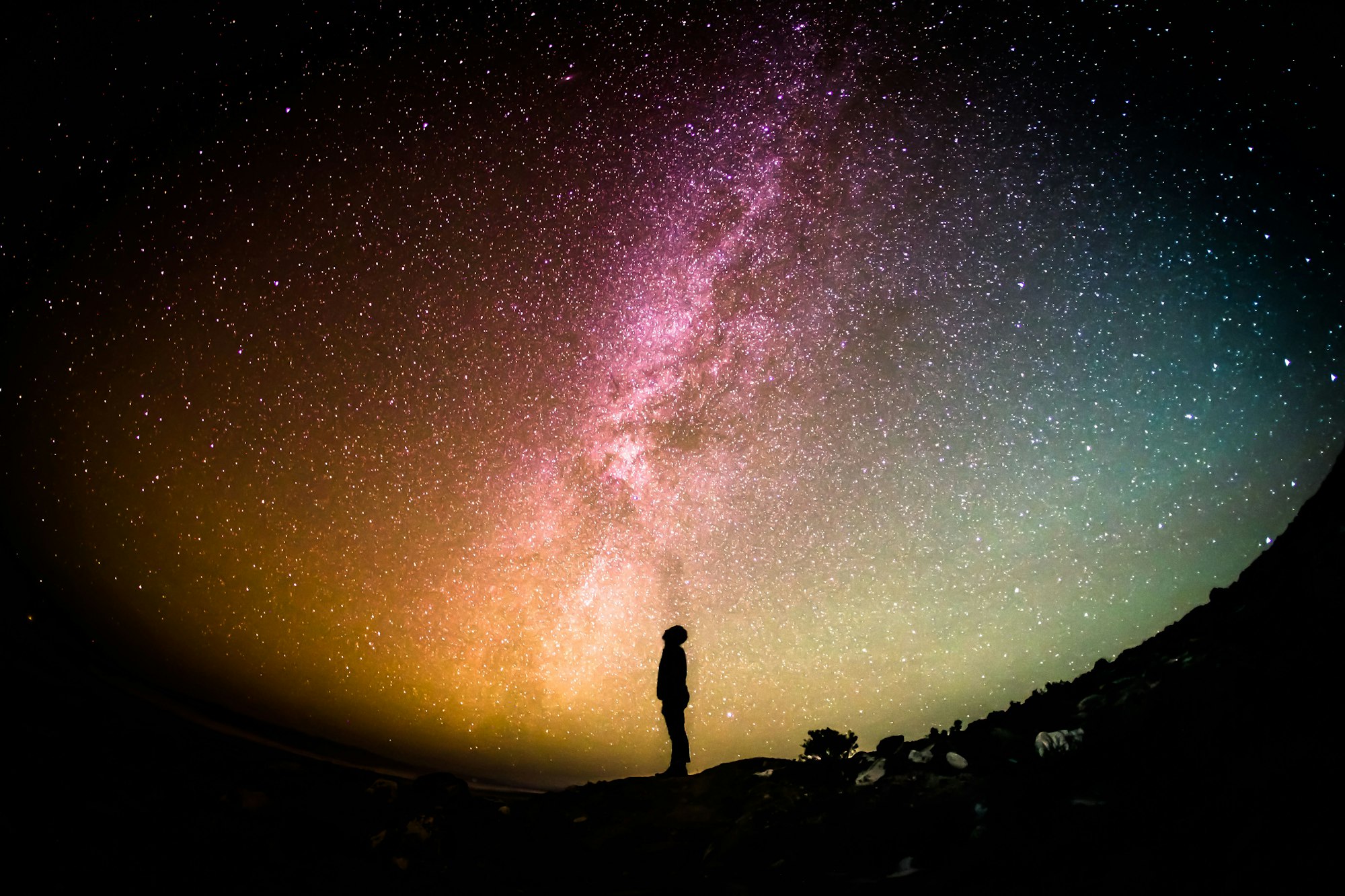Epistemology and the “Objective Truth"
Or, can science discover everything?

Okay, quick disclaimer, this is just a short, unfiltered, disorganized braindump coming from an autistic brain hyperfixating on some random concept it found interesting. It’s not tech, the arguments and lines of thought here are not “rigid” by any means, but I do think that the subject is interesting.
It all started with this:
Ooh, hot anime girl, right?
But basically, I play Honkai: Star Rail, people were really excited about Ruan Mei, an upcoming character that people mostly didn’t know much about (because she’s not released yet), and this trailer basically reveals her beliefs and passion and... wow, is it “interesting”; it’s certainly not what most people would’ve expected.
The TL;DR of the trailer is that she seeks out a “pure” truth, an objective answer to life, the universe, everything that explains all and, once understood, can formulate all. To her, emotions are nothing but neurotransmitters acting on certain areas of the brain, etc, etc.
Cool, I guess, even if it’s (personally) really creepy and unsettling.
But then I saw discussions online about how they think the same way, too, the “omg she gets me” stuff, and people started discussing her philosophy, and there’s apparently a term for it - absolute naturalism.
Britannica defines “naturalism” as follows:
Naturalism presumes that nature is in principle completely knowable. There is in nature a regularity, unity, and wholeness that implies objective laws, without which the pursuit of scientific knowledge would be absurd. Man’s endless search for concrete proofs of his beliefs is seen as a confirmation of naturalistic methodology.
And so, to get absolute naturalism, basically just jack that up to 100.
And I just... find it to be really weird?
Like, do people really believe that they can know, for sure, an absolute truth about the universe, let alone all the truths about the universe?
The universe just... exists. We don't know that it exists for people to discover, that it was built “to be discovered” (I think that’s a very human-centric way of looking at things - we are nothing but insignificant specks of dust in the grand scheme of things). It just “exists”, so how can you make guarantees like “there is a set of absolute truths about the universe, and we can discover them all”?
There’s nothing that says the universe has to be “understandable”, or even “rational”; there’s no guarantee that it’s even systematically consistent, that it behaves exactly in certain ways, with zero uncertainty about it.
And even if the universe turns out to basically be run by a set of absolute rules, I mean, we already know with certainty that there are true things that we literally, physically cannot know in any mathematically “consistent” system (i.e. Godel’s Incompleteness Theorem). So already, that kinda just ruins the entire premise of “we can know everything about nature and the universe”.
And, hell, we cannot even know whether the things that we perceive and understand are even the entirety of the universe, in its absolute (Epistemological Uncertainty). Philosophers have been thinking about the “brain in a jar” scenario for literally thousands of years (e.g. Plato’s Cave), and even after all that thinking, our best understanding is that there is no way to know for sure to distinguish whether “the universe” as we know it is or is not a simulation. So again, how can you assert that we can know everything about the universe?
I think that people who feel this way have just wayyy too much blind faith in our perception, and our understanding of knowledge. But if you think about it, and question it for even a moment, I think you’ll soon come to a realization that this is an unfounded optimism/belief.
A small example (that I’ve beaten my family over their heads with, sorry not sorry): consider standing in front of a mirror. You see a reflection of yourself in the mirror, and it “looks like” there’s a person “behind” the mirror. You “objectively” understand that what’s happening is that there are beams of light that are bouncing off of the mirror and into your eyeballs, and the image reflected on the mirror is where the photons would be if it passed through the mirror.
But you still see the person behind the mirror. You “see” an entity that, to us, seems to be physically behind the mirror, even though the mirror is a flat surface. This “glitch in the matrix” moment shows that we don’t really “see” the universe in its entirety “as-is”; rather, we are only able to perceive it through limited means (e.g. the sensors in our eyes connected to neurons), and what we “see” is nothing but the brain’s interpretation of said perception.
In other words, that bit about photons bouncing off the mirror and hitting the sensors may be objective, but what we see, what we understand, is nothing but an interpretation of said objective reality, if it even exists.
There’s a saying in statistics: “all models are wrong; some are useful”, and it’s really the same here. Our understanding of the universe is nothing but an interpretation of it; the universe “just” exists, as-is; likewise, what we “understand” about the universe is really nothing more than a set of (consistent) models about how we think the universe works, in an attempt to explain what happens in the universe.
But it’s just a model.
We don’t know for sure that it’s the absolute truth; however, it is consistent enough for us to do research on it, and build on top of it all these amazing things like the steam engine, GPS satellites, the internet, and quantum computers. Hell, we even tricked rocks into thinking (AI)!
This, we call science.
But notice that science, and in particular, the scientific method (which is why we’re able to get something that’s even remotely reproducible), does not prescribe whether something is the absolute truth, whether something is the whole truth, or even whether the things it’s measuring and describing is the entirety of reality.
The universe simply “is”. For all we know, the universe might actually follow a set of concrete, strict rules. But to say we can know for certain the fundamental truth of the universe is nothing more than an arrogant folly; an unfounded, unsubstantiated, and absolute faith in our own perceptions and the reality that we can perceive, ignoring even the possibility that the perceivable, understandable, and computable truth may only be a portion of the whole (1), like how the blind men may believe that the part of the elephant that they can touch is the elephant in its entirety.
Do not fall into that trap. We may be blind, but we can at least recognize that we're blind. Try to think about what assumptions you may be making (often, without even realizing it). Question your beliefs, question what you think you know, and question how you got to the conclusion that you “know” a thing, and you may find a gap, a leap in faith, a blind spot that our brain simply smoothed over without telling us, more often than you’d think.
Even if you don’t follow the rabbit hole all the way down to metaphysics and epistemology (and I admit, those are rather deep rabbit holes to go down to), at least know what you don’t know, instead of assuming that you just “know” the things you take for granted.
(1) To see why what we “know” may only be a subset of what “is”, consider the fact that there are an entire set of numbers that are literally not computable, that we have no hopes of even calculating. In fact, if you’re into epistemic absolutism (like the people who see the character and go “omg she’s literally me”), it is literally mathematically proven that there are infinitely many more uncomputable numbers than computable ones, that even the set of irrational numbers that we know of and are able to understand is an infinitely small fraction of all numbers that is. Now imagine that we knew all the rules of physics that exactly described how the universe works - what happens if an uncomputable number shows up as a constant in one of those? What does that say about the universe? Think about it, and you’ll soon realize why we probably can’t be certain that we know everything about the universe in its entirety, with absolute certainty.
